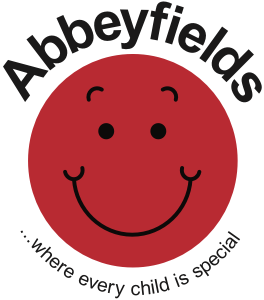At Abbeyfields, every child is a reader.
“Reading is the gateway skill that makes all other learning possible.” Barack Obama
“The children should learn that reading is pleasure, not just something that teachers make you do in school.” Beverly Cleary
Reading is a priority at Abbeyfields and is one of our four curriculum drivers. We want all our children, regardless of their backgrounds and starting points, to be fluent readers and to have a love of reading.
Subject leader for Reading and Phonics: Mrs R Wales
Phonics
We use the Read Write Inc phonics programme to get children off to a good start with “learning to read” so we can equip them as soon as possible to be “reading to learn.”
A DfE-approved systematic synthetic phonics scheme, Read Write Inc teaches children the most common sounds in English, the letters that represent them and how to form those letters when writing. We believe that a strong and consistent approach to the teaching of phonics is vital for our children to begin to access the rest of the curriculum and this begins very early on when children first join Reception (children who are ready in the summer term of Nursery will begin to learn Set 1 sounds). The teaching of phonics continues until a child is a competent and confident reader. Children are taught phonics daily with a focus on both decoding and encoding skills (they write simple, dictated sentences including the words they have been taught so far).
A parents’ guide to Read Write Inc can be found on the Oxford Owl website.
Reading
Reading and books are at the heart of our curriculum and we promote a love of reading from the minute children join us in Nursery.
Children who are being taught phonics read independently at least three times per week: they read and re-read their Read Write Inc decodable reading book. These books are closely matched to the sounds that each child has learned and is confident with, so they will be able to read each word accurately by applying their phonics knowledge. This success helps them to build confidence, a ‘can-do’ attitude and instil a love of reading.
Once children are confident and competent readers, they choose any book that takes their interest from their year group’s selection. Staff are always on hand to guide them with their choices if necessary and to make suggestions about what the child might enjoy next. They develop progressive fluency in quiet reading time, and in daily reading lessons with their teacher, children increase their stamina and develop their prosody and comprehension by reading longer texts, engaging in Reading Plus and participating in reciprocal reading.
We choose high quality and engaging texts to use as prompts for the children’s work in English lessons. Have a look at our Talk for Writing plan to find out more.
In the wider curriculum, subject leaders have developed a selection of texts to reinforce and extend children’s learning. For example, in science lessons Year 1 children read the story of The Tiger Who Came to Tea by Judith Kerr, then discuss whether the animal’s food choices were appropriate for its diet.
We foster reading for enjoyment in daily read-aloud sessions throughout the school. The books we read are informed by our “must-reads”: a selection of aspirational fiction books that every child will experience during their time at Abbeyfields. The selection encourages imagination, empathy and the ability to think in the abstract, and enables children to learn about people, places and events outside of their own experiences.
Books are everywhere at Abbeyfields! Every classroom has books openly available to children and time is set aside regularly for quiet or shared reading as appropriate to the age and stage of the children. Teachers curate their book areas based on both their own knowledge of children’s literature and also of the interests and preferences of their classes. Every classroom has a book voting station and, each week, the teacher displays two books for the children to peruse, then vote for their favourite. The book with the most votes is shared during the daily read-aloud session. In shared areas like corridors, children and staff can choose from books that shine a light on diversity, protected characteristics, personal development and Modern British Values.
Reading at home
Each week, children receiving phonics lessons take home three books: 1) the decodable book they have read in phonics lessons that week; 2) a decodable Read Write Inc Book Bag book and; 3) a book for an adult to read aloud and share together with the child. Parent video: Why read to your child?> At home, children can show off their burgeoning reading skills through repeated reading of decodable books and also listen to what they can aspire to read independently in the future.
Confident and competent readers take home the book they have chosen in school and we expect families to continue to listen to their child read, supporting them with their fluency and deepening their understanding. Sharing books together with enthusiasm at this stage remains vital: it extends and enriches the reading experiences in school, and reinforces to children that reading is a life-long, pleasurable pastime.

